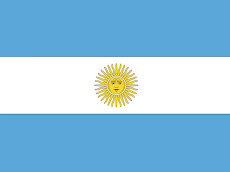Almost a year ago, I watched a documentary about the 1994 Rwandan Genocide.
Between the images the breathtaking country side and brutality, I vowed that I would see it for myself someday—the green fertile hills and how a country rebuilds after it has torn itself apart.


After two days of bus rides, Julie and I found ourselves in Kigali, the capital city. We were surprised how many people spoke English or Kiswahili (the official languages are French and Rwandan) and how many people helped us find the right buses and change money. We met other American friends of ours from Dar who had gotten to Kigali a few days before us and went out for dinner to celebrate one of their birthdays. We hailed eight motorcycle taxis on the street to take us to the restaurant. Cruising through the cool evening, up and down hills along small streets felt like a good beginning to the end—my last adventure on this trip to Africa. Even the motos didn’t go to the right restaurant and go lost several times on the way to a suitable substitute, the ridiculousness of eight Wazungu (the word seems to be the same in Rwandan) with lost, confused motorcyclists, compensated for the lack of preciseness.
In Kigali, we visited the Genocide Memorial Center, a small well-organized museum that clarified many of the questions about the genocide, that Julie and I had been asking each other on our way. We also went to Ntamara, the site of a small church where 5,000 Tutsis were killed. After a sunny walk, we entered a quiet church, not prepared to see the rows of skulls and bones along back and clothes along every wall. Numbly I took pictures, feeling callous, but desperate to capture the moment.
The next day we went to Murabi, where thousands of people were slaughtered in a school. After the bodies had been excavated from the mass graves, they were preserved in lime. We peered into about half of the 24 classrooms filled with white-coated bodies, contorted and mangled spread out across tables. We saw bodies with broken bones, smashed heads, and pained expressions. The faces of men, women, and children looked like they were trying to scream. But the rooms were silent and outside the sun shone and small children played with pinwheels in a field. When I held up my camera they cheered and posed.
We spent the rest of the trip on cramped buses or Dhalas, visiting different cities, photographing kids through the windows. I’m not sure why, but I was more affected by beggars in Rwanda and found myself handing over small change and snacks more frequently than in Tanzania. When I bout a pack of cookies to hand out to a crowd of dirty kids, Julie told them that I was a malaika (angel). I felt uncomfortable, aware that I only fed them to appease my guilt.

We spent two nights in Kibuye, a town next to Lake Kivu, the lake bordering the Democratic Republic of Congo. We walked around searching a convenient beach to swim, but only saw fishermen on boats in the lake. Rwandans seem more concerned with farming than encouraging tourism, but we enjoyed walking around the small town.
The food was also a welcome slight variation. Although most food is similar to Tanzanian standards, many restaurants have buffets with rice, French fries, salad, beans, green beans, spinach and cooked bananas for about $2. Even better, cheese is cheaper and more flavorful than in Tanzania. We think its their connections with France.
Throughout traveling in Rwanda, I never heard anyone mention tribal affiliation, but I heard many people refer to the genocide. A stranger on a bus told us that Rwanda had a sad history, but that the sadness was finished. When I took pictures of the DRC border and a man wanted to take my camera from me, I showed the camera to a female police officer to prove I had erased the offensive pictures. She saw the pictures from Murabi and shook her head, saying “so much bad.” The people say that the problems are over that they are one pople now. I have trouble believing that decades of ethnic strife can end so quickly. But looking over green hills dotted by small memorials decorated in purple, the color of mourning, I want to believe that this peace can last.

Now I'm back in the dorms for a few days, running the last few errands and packing before I go back home. I'm already worried about feeling cold and culture shocked in America, but am listening to Christmas music to get excited.










